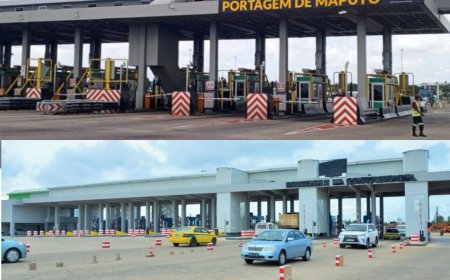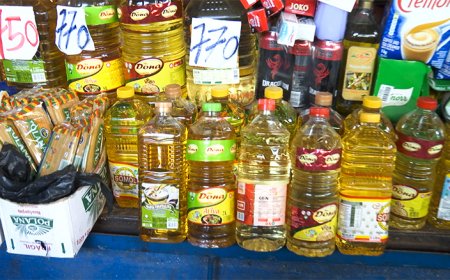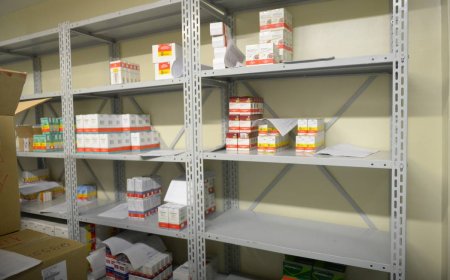Cabo Delgado business owners confront TotalEnergies over exclusion from Mozambique LNG project
Business owners in Palma confronted TotalEnergies over their exclusion from opportunities tied to the Mozambique LNG project, valued at 20 billion US dollars, demanding concrete benefits for the local economy. In response, the energy giant promised greater openness and dialogue, but local entrepreneurs warned that their patience is wearing thin in a district where poverty starkly contrasts with the wealth generated by natural gas.

As discussions intensify around the relaunch of the Mozambique LNG project, suspended for the past four years due to security concerns, a crisis of trust between Palma’s business community and TotalEnergies dominated the meeting held on Saturday in Palma district, Cabo Delgado province, home to the mega gas project.
During the meeting, local entrepreneurs denounced their exclusion from the opportunities generated by the project, demanding greater transparency, inclusion and fair redistribution of economic benefits. Maxime Rabilloud, TotalEnergies' general manager in Mozambique, sought to ease tensions, promising more direct dialogue with local economic operators, requesting patience and assuring that Palma would be treated as a direct partner.
The entrepreneurs’ interventions were marked by frustration and mistrust. They accused the French company of isolating the Afungi camp from the local economy and neglecting its commitments to Palma’s entrepreneurs. Hospitality services, restaurants, logistics providers and food suppliers have faced major challenges due to the project’s operations being concentrated within the camp, without meaningful integration with local businesses.
“We know there are a significant number of workers in Afungi, but they do not allow them to stay in town. This kills the local economy. We have hotels and restaurants with no customers because everything is confined to the camp,” said Momed Omar, a local hotel owner.
From the logistics sector, Ema Salimo voiced strong criticism: “They claim to buy from local businesses, but it is not true. There are internal schemes where people inside the project supply goods and then claim they came from us. Everything is at a standstill here. Action is needed urgently,” she said, referring to alleged favouritism and internal corruption.
Confronted with these accusations, Maxime Rabilloud acknowledged communication failures and promised changes. “It was an important meeting. I noticed there were misunderstandings caused by communication gaps. There is no intention to reduce local purchases. On the contrary, with the lifting of the force majeure, procurement will increase,” he said, noting that a significant share of the food for the roughly two thousand workers is already sourced locally.
The general manager pledged to personally address the concerns raised. “I will personally engage to ensure that the business sector in Palma benefits directly from the project,” he stated.
The meeting, which ended without consensus, was adjourned to 11 September, when TotalEnergies will send a technical team to gather and systematise local concerns. Rabilloud committed to returning to Palma later this month to monitor progress. “After the technical team, I will come back personally to sit with you. Our commitment is clear: to develop Mozambique, Cabo Delgado and Palma in particular,” he promised.
According to Pedro Silva, representative of the Association of Economic Activities of Palma, TotalEnergies’ gesture is positive but must lead to tangible results. “We hope that this time they keep their promise to engage with us and include our businesses. There is a lot of concern about being excluded from the project’s opportunities. September 11 will be decisive,” he said.
With the official resumption of the Mozambique LNG project expected soon, local businesses are demanding that the benefits of Africa’s largest liquefied natural gas venture not be limited to foreign investors and multinationals, but reach the local population as well.
Despite hosting one of Africa’s most significant energy projects, Palma remains deeply impoverished. Many communities lack electricity, clean water and basic sanitation. Local roads are in poor condition, hindering the transport of agricultural products, and youth unemployment remains high.
Most of the population survives on artisanal fishing and subsistence farming, earning extremely low incomes. Small business owners who invested in infrastructure to support the project feel excluded, with no return on their investments.
The district lacks hospitals with adequate capacity, schools in proper condition and meaningful employment prospects for young people, who often drop out of school due to the lack of infrastructure and opportunities.
This stark contrast between the presence of one of the world’s largest multinationals and the precarious living conditions of the local population is fuelling tension and growing dissatisfaction. Civil society organisations and community leaders point to a wide gap between development rhetoric and real impact. Palma is today a land rich in resources but poor in living conditions, a reality that is becoming increasingly unsustainable.





















